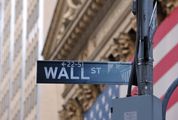
"WHEN America built the Statue of Liberty on the east coast, they forgot to build the Statue of Responsibility on the west coast." These are the words of Victor Frankl, quoted by Paul Polman, CEO of Unilever, during the Fourth Global Drucker Forum in Vienna last month. The quote refers to all of global society and in particular to business and business leaders. The assumed responsibility embedded in society’s understanding of leadership seems to have taken a back seat, the results of which are dominating the global economic agenda.
This was the sentiment running throughout the forum’s theme, "Capitalism 2.0". During this gathering of thought leaders — and at an almost parallel gathering in South Africa at the Spier Estate in Stellenbosch, where the focus was on sustainable development — it was clear there was broad and sufficient agreement (at least among those who participated) that:
• capitalism was under siege and at a crossroad, and could and would not return to its brute form as before "the crisis" (even though many business leaders continue behaving badly);
• the disparities in the global social system had reached breaking point;
• capitalism may not have been the direct cause of the financial crisis, but the crisis — in the context of some serious global social challenges, identified capitalism in its current form as a legitimate suspect; and
• the economy needed to serve society and not the other way around.
Stuart L Hart, professor of management at the Samuel Curtis Johnson Graduate School of Management at Cornell University, has echoed this sentiment in his book Capitalism at the Crossroads: "Global capitalism now stands at a crossroads: without a significant change of course, the future for globalisation and multinational corporations appears increasingly bleak."
Human systems are indeed complex, and within these systems are sub-systems such as capitalism that, among other characteristics, is ecological: it changes, it drifts, it produces unintended and unexpected consequences and so forth. It demands a watchful eye and a depth of understanding to be tweaked or changed to better serve its purpose.
Roger Martin, dean of the Rotman School of Management, points to the maximising of shareholder value as being the concealed virus embedded in capitalism and which has now come to cripple it. In his latest book, Fixing the Game, he refers to the unfortunate linkage of the real market (real manufacturing, real sales, real value-add and so forth) to the expectation market (stocks, stock options, derivatives and the like). It is the lopsided focus on the latter that brought the economy, capitalism to this breaking point. In thinking around the idea of Capitalism 2.0, the focus ought to be on how to limit the effects of the expectation market and return the focus to the real market.
An either/or approach ought to be avoided. Adrian Wooldridge, management editor at The Economist, offers this position in an effort to circumvent the traditional clash of absolutes. The reality to acknowledge and concede to is that the excessive focus on shareholder value and short-term results brought with it many social and economic calamities that are difficult to solve. It allowed for the manipulation of share prices to favour the shareholders, of which the business leaders are very much part, valuing short-term results over the long-term, sustainable life of an organisation.
However, according to Wooldridge, it would be a mistake to think of shareholder value and short-term focus as the only causes. The problématique (a system of problems) rather exists and persists because of dealing with these issues in absolute terms – that is, not to position these constructs as "masters" but rather to employ them as our "servants".
There would be little resistance to the notion that business is a part of society and, as such, ought to behave itself as being of service to society. Over many decades, business indeed served society with fantastic innovations in technology, medicine, agriculture and more, through the dynamic philosophy of capitalism.
The paragraphs above claim, however, that with these magnificent contributions came misfortunes, causing society to frown upon business, business leaders and capitalism. Attributes of arrogance, greed and complacency are directed at once-respected leaders and organisations. The "shareholder is king" approach does not resonate well with society, and legitimately so. The ever-increasing gap between rich and poor has reached a point where the containing human system cannot deal with it any more. This is the lurking danger: when our social cohesion breaks down, society (of which business is a part) will be in great danger. Occupy Wall Street, the Arab Spring and Marikana are all part of the unfolding script on the wall. Unfortunately, the reading thereof and the conversation (rational and authentically reflective) on these issues are still conducted within limited circles and has not reach the wider circles of society and the critical mass in business.
Why is this important for us as Africans?
Africa is positioning itself for substantial growth, and political leaders are adhering to the investment call for political stability and an environment conducive to entrepreneurship. For us the discourse on capitalism and sustainable development is therefore vastly important if we want to evince lessons learned.
The delicate global financial system and the enormous global challenges around energy, water and food are also our problems. Capitalism, as it is now understood and conducted, is unlikely to facilitate sustainable development in Africa, despite it being the best wealth-creation mechanism we have designed thus far. Far less so the alternatives of the past that tried to contend with capitalism; they proved to be far more devastating for the ideal of a sustainable society.
There is no silver bullet or panacea. What might be considered is for our intellectual lighthouses in business, the public sector and civil society to convene (our business schools can take the lead on this) and critically review the social contract with business as a full subsidiary of society. The main theme and spirit of the contract ought to be a systemic discourse on sustainable development and not fragmented and isolated conversations on corporate social responsibility, environmental issues and such.
Business is a hugely important citizen in society. Applying entrepreneurial principles, it must be free to creatively transform resources into much-needed wealth and jobs, and to fill the agora with goods and services. Yet, the statue on the west coast must also be built: the conversation on responsibility cannot be sidelined or be a footnote to the contract.
With freedom comes responsibility, and in that sense it is not an absolute: it is always attached to some condition. A fish is free to swim wherever it wants, as long as it remains in the water. So it is with business, and capitalism: it swims within in a sea of responsibility towards sustainable development. As in any contract, the principle is well expressed in the maxim "pacta sunt servanda" — an agreement must be honoured, more so in its spirit than in its letter.























Post a comment